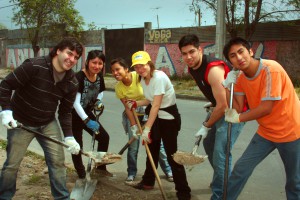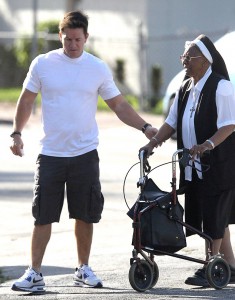Every year there are data collected and compiled into the World Giving Index (WGI). The WGI measures how generous people are in each nation based on the percentage of the population that:
- Donates money
- Volunteers
- Helps strangers
It was released that in 2013 the United States climbed 4 spots from #5 to #1 in the WGI, particularly for our dedication to worthy organizations and helping those in need. It’s a true testament that while not all of us can give what we want, many give what they can.
How Many People Volunteered in 2013?
The data showed that more than 115,000,000 people in the United States over the age of 15 volunteered their time. This can be found in students doing their best toward a stronger college application as well as with adults who support non-profits, such as national organizations like the Red Cross and programs that are local to them, like beautification societies and youth projects.
While it’s true that this can also be a great way to network by making valuable contacts that lead to lucrative opportunities in the future, that will lead to even more opportunities to be generous because as one’s income grows, the opportunity to support those same organizations increases.
How Many People Donated Money in 2013?
According to the WGI, the US did not break the top 10 in this category, the top spots were held by Myanmar and United Kingdom (tied for 2nd overall), and Malta (12th in 2013).
While our ranking in relation to other nations was lower, approximately 155,000,000 Americans gave money to worthy causes on a monthly basis. Regarding our time volunteering, it may also be a testament not only to our wealth in terms of cash, but also in opportunities to give.
Myanmar, for example, is a nation with very low wealth and education as a result of its oil wells and mines being devastated during World War II, which was followed by military rule that was only recently transitioned into a republic in 2011.
This is in stark contrast to the UK and Malta, both of which are members of the European Union and popular tourist destinations.
Helping Strangers
As a nation, we are divided greatly in favor of helping strangers. While many claim that “charity begins at home” and stays there, 77% of the people in the US disagree, including Mark Wahlberg, as can be seen in this photo of him aiding an elderly nun across a street in Miami following a religious service.
This can be related to volunteer work, helping someone with a flat tire, or even giving a dollar to a person in need. Per the WGI, Mr. Wahlberg is not alone in committing acts of kindness. 197,000,000 Americans helped strangers in 2013, some starting a chain reaction and others paying it forward.
Why are we so Generous?
There are several aspects that pertain to why people in the United States are so generous. For one, we applaud people’s good deeds, even on this blog; another reason is that we understand that there are great benefits to giving. Third, we have resources that make giving easier, and they don’t just involve time and money.
Our wealth is not only to be measured in the flow of our cash, but also in necessities like water and healthcare. For those who have not traveled to nations with lacking infrastructure, it might be hard to imagine living without clean running water when we have water that pours out in such abundance it can flood a skyscraper! The fact that we won’t even drink it would be unfathomable to many.
In many nations, lacking access to skilled doctors leads to more lengthy periods of illness. Being sick makes it much harder to help ourselves let alone give to others.
Lastly, a big part of what makes us generous is that the information in this blog post is nothing new. That is why we activate ourselves to assist other nations when natural disasters strike. We send clothes, food, money, and anything else that people need. We do this because we are grateful for the privilege to do so. Of those who have the opportunity, many take it, and happily so.


